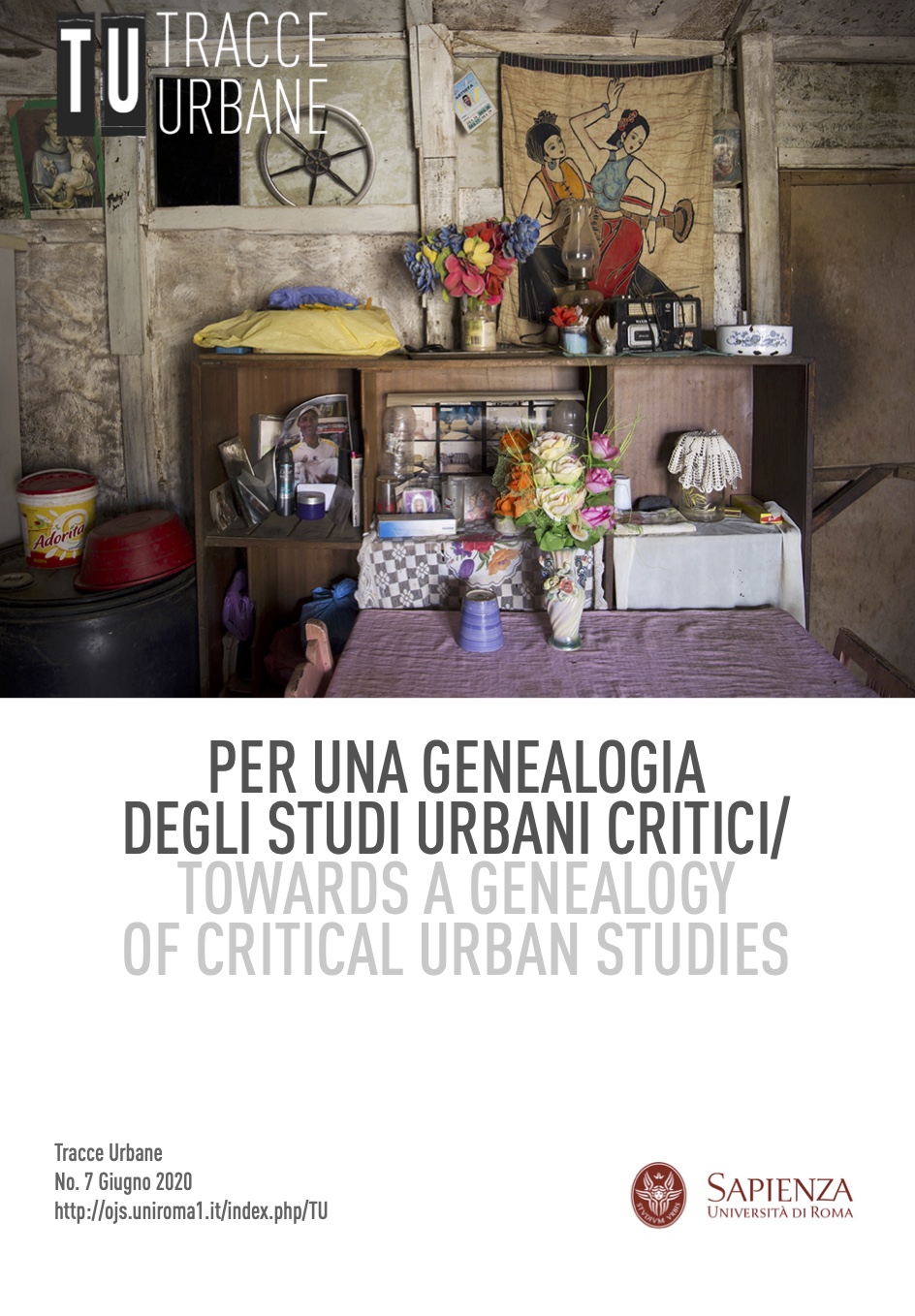The hidden history that winds through every city Critical Urban Studies, Social Movements, and Radical Transformation
DOI:
https://doi.org/10.13133/2532-6562_4.7.16854Keywords:
Urbanistica, Movimenti Sociali, trasformazioniAbstract
Aim of this special issue of Tracce Urbane is to stimulate an exploration of the historical, political, social, and intellectual reasons that brought to a peculiar and, in a way, ambiguous field of knowledge: that of critical urban studies. David Madden, Professor in Sociology at the London School of Economics and Political Science, Co-Director of the Cities Programme, and co-author, with Peter Marcuse, of In Defense of Housing: The politics of crisis (Verso, 2016), whose Italian edition is forthcoming (by Barbara Pizzo for Edit Press), has been invited to discuss the complex social arena in which critical urban studies stands, reflects, and acts. In the conversation that follows, Madden explores some fundamental topics related to the production of this specific academic knowledge, such as the ‘canonlessness’ that characterizes urban studies, the emphasis on intervention and radical transformation that inhabits critical urban studies, the utopian dimension of this tradition of study, the heterogenous genealogies that should be considered when approaching this discipline, the necessity of listening and considering the social sources of critique that rise in every neighbourhood or city around the globe, the future of critical urban studies and its relation with urban struggle, the way in which social movements contribute to its development, the role of academics in promoting social changes, his personal commitment in defense of housing as a space for inhabitants. In his words we can find a first answer to Saskia Sassen’s argument that «spaces of the expelled cry out for conceptual recognition» (Sassen, 2014: p. 222). According to Madden, this recognition cannot be only conceptual. It must be grounded, it must be critical, it must be radical.
Downloads
Published
How to Cite
Issue
Section
License
NOTA DI COPYRIGHT
Proposta di licenza Creative Commons
1. Proposta per riviste Open Access
Gli autori che pubblicano su questa rivista accettano le seguenti condizioni:
Gli autori mantengono i diritti sulla loro opera e cedono alla rivista il diritto di prima pubblicazione dell'opera, contemporaneamente licenziata sotto una Licenza Creative Commons - Attribuzione che permette ad altri di condividere l'opera indicando la paternità intellettuale e la prima pubblicazione su questa rivista.
Gli autori possono aderire ad altri accordi di licenza non esclusiva per la distribuzione della versione dell'opera pubblicata (es. depositarla in un archivio istituzionale o pubblicarla in una monografia), a patto di indicare che la prima pubblicazione è avvenuta su questa rivista.
Gli autori possono diffondere la loro opera online (es. in repository istituzionali o nel loro sito web) prima e durante il processo di submission, poiché può portare a scambi produttivi e aumentare le citazioni dell'opera pubblicata (Vedi The Effect of Open Access).


